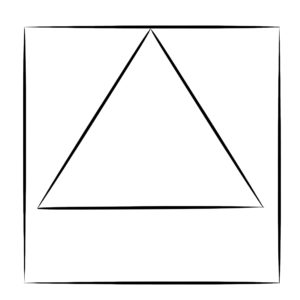
The Grace of Cleaning: An Exposition on Ho’oponopono
In the realm of spiritual and personal development, few concepts offer as profound a transformative power as the ancient Hawaiian practice of Ho’oponopono. Its essence, deeply rooted in centuries-old wisdom, was developed and introduced to a broader audience by Morrnah Nalamaku Simeona and Dr. Ihaleakala Hew Len. It provides a practical, day-to-day path to peace, wellness, and a deepened connection with the self and the world.
At first glance, Dr. Ihaleakala Hew Len’s advocacy for “cleaning” as a pivotal aspect of Ho’oponopono might seem perplexing, if not outright off-putting. Can uttering a set of phrases ad infinitum whilst performing mundane tasks truly alter our reality, eliciting miraculous transformations? These concerns, while entirely valid, only scratch the surface of this profound spiritual practice.
Ho’oponopono, when contextualized within broader psychologies and ancient wisdom traditions, represents a refined tool for personal and spiritual evolution. Notably, a significant portion of this practice is the act of “cleaning,” a metaphorical term that refers not only to physical tidiness but also to the cleansing of mental, emotional, and spiritual impurities.

The Ho’oponopono psyche, as described by Morrnah Nalamaku Simeona, is a sophisticated system, primarily dominated by the conscious and subconscious mind. These aspects engage in a continuous dialogue, wherein the subconscious proffers suggestions and the conscious mind exercises its discernment, accepting or dismissing these suggestions based on its preferences.
Morrnah Nalamaku Simeona’s unique interpretation suggested that much of Ho’oponopono could be understood as mental processes. This notion, often surprising to Western audiences, implies that a significant part of the “cleaning” can take place within one’s mental landscape.
The concept of cleaning, within the framework of Ho’oponopono, extends beyond a mere chore. It is not an obsession or penance, but a mindful practice that transcends physicality. When we approach cleaning not as a task but as an opportunity for psychological purification, we allow ourselves to address and clear our karmic data.
Indeed, every act of cleaning presents a chance to face and discharge some karmic data. However, when we consciously link the physical act of cleaning with the mental act of karma removal, the effects are significantly amplified. We can select what we wish to cleanse from our lives—be it a troubling situation, a harmful pattern, or a lingering emotion—before or during our cleaning routine.
Interestingly, the practice differentiates between cleaning and grooming. While grooming—taking care of our bodies and hair—is a fundamental human and animal activity, physical cleaning primarily distinguishes us as humans. While grooming can involve the repetition of the Ho’oponopono prayer, the act of cleaning, being uniquely human, can serve as a powerful metaphor for karmic data removal.
A delightful surprise within this framework is that one doesn’t have to clean themselves physically to benefit. Employing a cleaner who carries out the physical tasks can also help purge your karmic data. However, for this to happen, you must decide on the aspect of life to improve through their cleaning, particularly focusing on any associated emotions and intentions.
Although employing someone else to clean may never be as rapid or effective as doing the physical cleaning oneself, it can offer a practical solution for those with tight schedules. This process symbolically mirrors tasking our subconscious inner child with working on our behalf.
However, remember to treat your cleaner kindly, ensuring their work is thorough without pressuring them into the practice of Ho’oponopono unless they exhibit an existing interest or express curiosity about it.
Ho’oponopono is a fascinating discipline imbued with a strikingly straightforward yet potent model of the psyche that anyone can leverage. It is important to note that this practice springs from a shamanic tradition and thus requires thoughtful application and respect. The potential to misuse or trivialize such a powerful tool is a temptation to be avoided; it is not a mere gadget of psychological engineering but an intricate aspect of a rich spiritual heritage.
As with any transformative practice, the journey with Ho’oponopono asks for a constant vigilance over one’s thoughts, a relentless commitment to cleaning, and a passionate pursuit of the state of Zero—the point of absolute peace and balance. Our thought patterns can prove to be obstinate, often reverting to the known and the comfortable, regardless of their dysfunctional outcomes. The continuous, intentional cleaning of these patterns propels us towards a space of internal equilibrium or ‘Zero,’ where the Self aligns with the universal cosmic order.
The Ho’oponopono practice, as developed by Morrnah Nalamaku Simeona and Dr. Ihaleakala Hew Len, combines mental discipline, emotional integrity, spiritual cleaning, and physical action. The cornerstone of this journey is the simple, conscious act of ‘cleaning,’ serving as a profound metaphor for internal and external transformation.
Ho’oponopono practice empowers us to take control of our life’s narrative, cleanse our karmic data, and foster an environment of personal and collective healing. However, this spiritual path is not to be tread lightly or trivially—it is a commitment to oneself, to one’s healing, and ultimately, to the healing of our collective human experience.


You May Also Like

Discover the Power of Ho’oponopono with the Blue Bottle

The Magic of Erasers in Ho’oponopono: A Simple Tool for Transforming Your Life
